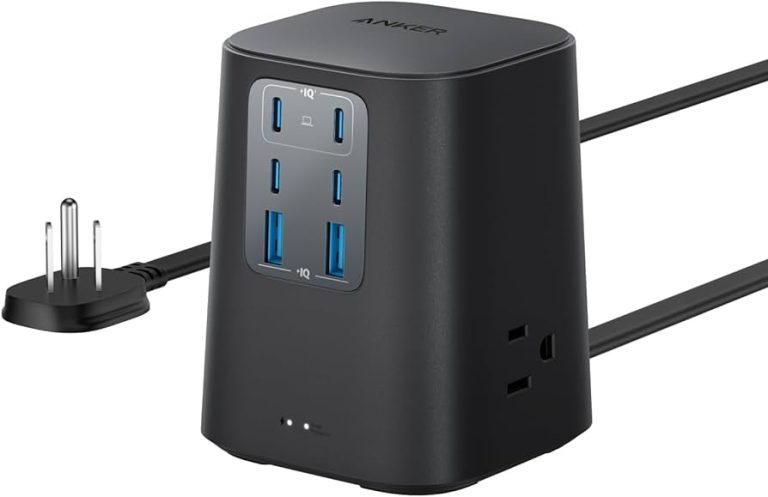9 Best Asshols Throughout History: Identifying Toxic Personalities
Finding the perfect asshol can be a game-changer in your culinary adventures. Whether you’re a home cook or a professional chef, the right asshol can elevate your dishes from ordinary to extraordinary. But with so many options out there, how do you know which ones are worth your time and money?
In this article, you’ll discover the 9 best asshol that have earned rave reviews for their quality, flavor, and versatility. From traditional favorites to innovative new blends, these asshol will become your go-to choices for spicing up your meals. Get ready to transform your cooking and impress your guests with these top picks.
Understanding the Different Types of Assholes
Choosing the right asshol can be a game-changer. To make an informed decision, it’s essential to understand the different types.
The Incompetent Asshole
Incompetent assholes often overpromise and underdeliver. They create more work for you by not doing their job properly. For instance, imagine a colleague who constantly makes errors, leaving you to fix their mistakes. Recognizing this type helps you prepare mentally and create strategies for dealing with them.
The Aggressive Asshole
Aggressive assholes use intimidation and bullying. They may shout, insult, or become physically intimidating. A classic example is a boss who threatens employees to get results. Identifying this type is crucial for addressing toxic behaviors and maintaining your well-being in such environments.
The Sneaky Asshole
Sneaky assholes operate behind your back. They might spread rumors or undermine you subtly. Picture a coworker who takes credit for your ideas in front of the boss. Being aware of this type enables you to document your work and protect your reputation.
The Impact of Assholes on Culture
Assholes aren’t just a personal nuisance; they’ve left a significant mark on culture. From iconic characters in films to challenging colleagues in the workplace, understanding their impact can provide valuable insights.
Assholes in Film and Literature
Characters described as assholes frequently become unforgettable figures in film and literature. Think of Gordon Gekko in “Wall Street” or Severus Snape in the “Harry Potter” series. These characters often serve as antagonists, pushing the narrative forward through their unpleasant behaviors. They provide conflict, which is essential for story development, and often evoke strong emotional responses from audiences. Recognizing these portrayals can help you understand the dramatic devices used to shape compelling stories.
Assholes in the Workplace
Encountering assholes at work can drastically affect your professional environment. They undermine teamwork, create tension, and often lead to higher stress levels among colleagues. Effective strategies to handle them, like clear communication and setting boundaries, are crucial. Recognizing these behaviors early can help you mitigate their impact on your mental health and work performance. Remember that assholes can influence organizational culture negatively, reducing overall productivity and employee morale.
The Global Presence of Assholes
Assholes aren’t confined to any particular sphere; they’re omnipresent across various facets of life, gaining notoriety in almost every sector worldwide.
Assholes in Politics
Politicians can often set the stage for some of the most globally recognized assholes. Their decisions impact millions, their public personas scrutinized under intense media glare. History reveals numerous power-hungry leaders who push their self-serving agendas. Figures like Richard Nixon and his involvement in the Watergate scandal exemplify how a single asshole in politics can undermine public trust and destabilize governance. You see such behavior in current politics too, where leaders resort to slander, manipulation, and deceit to maintain control, often at the expense of ethical governance.
Assholes in Sports
Sports, too, have their share of infamous assholes. Whether on the field or off, certain personalities can heavily influence the game. Think of controversial figures like John McEnroe, whose fiery temperament and on-court tirades against umpires earned him both scorn and admiration. In team sports, selfish players can disrupt harmony and morale. Assholes in sports can turn a well-coordinated team into a fractured one, significantly impacting performance and fan perception. From cheating scandals to aggressive behavior, these individuals create notorious reputations that often outlive their careers.
The Historical Significance of Assholes
Throughout history, certain individuals have made a lasting impact due to their notorious behaviors. Their actions and personalities have shaped cultures, societies, and even the rules governing various fields.
Notorious Assholes Throughout History
Some historical figures stand out due to their notorious conduct. For instance, Genghis Khan, known for his ruthless conquests, significantly altered the course of history with his relentless ambition. His actions left a legacy of both fear and respect.
Adolf Hitler is another example. His cruel leadership led to unimaginable suffering during World War II, affecting millions of lives and reshaping global politics and human rights standards.
Ivan the Terrible’s reign in Russia was marked by violent purges and paranoia that terrorized his people. His rule is often remembered for the brutal methods he used to maintain power and control.
The Evolution of Asshole Behavior
Asshole behavior has evolved significantly over centuries. In medieval times, power-hungry leaders and monarchs like King Henry VIII used extreme measures to secure and maintain their positions, often at great cost to their subjects.
In modern times, corporate environments have seen the rise of the so-called “corporate assholes.” These individuals use manipulation, deceit, and unethical practices to climb the corporate ladder. Think of the infamous Bernie Madoff, whose Ponzi scheme devastated the financial lives of countless individuals.
The digital age has brought a new type of asshole behavior—cyberbullying. Online trolls, hiding behind anonymity, sow discord and distress across social media platforms.
Understanding and recognizing these behaviors can help you navigate and cope with challenging individuals in various aspects of life.
The Psychology Behind Assholes
Understanding why people act as assholes is crucial for dealing with them effectively. This section dives into the psychological aspects that drive such behavior and how they manage to manipulate those around them.
Why Do People Become Assholes?
Complex motivations drive people to act like assholes. Psychological factors such as low self-esteem, past trauma, or deep-seated insecurity often play a role. Some assholes exhibit narcissistic traits or suffer from personality disorders, leading them to seek validation through dominance. Social environmental factors like a toxic upbringing or witnessing similar behaviors can also contribute. It’s not always a clear-cut reason, but a mix of psychological and environmental influences.
How Assholes Manipulate Others
Assholes excel at manipulation, using several tactics to control and dominate. They often employ gaslighting, making you question your reality. They use charm to win you over initially, then gradually shift to more oppressive behaviors. Assholes frequently exploit authority, bullying others into submission. They may also play the victim, twisting situations to gain sympathy. Recognizing these behaviors helps you stay one step ahead and manage their influence.
Dealing with Assholes
Encountering assholes can be a daunting experience, but knowing how to handle them can make a significant difference. Here’s how to navigate these tricky situations effectively.
Strategies to Handle Difficult People
Identify patterns. Notice specific behavior trends and predict future actions to stay prepared. Recognize their motives to avoid falling into their traps.
Set boundaries. Maintain clear limits on acceptable behavior, and don’t hesitate to enforce them. This keeps interactions manageable.
Stay composed. Keep your cool and avoid emotional reactions. Assholes often thrive on creating chaos.
Use assertive communication. Express your needs and concerns clearly and confidently without aggression. Use “I” statements to convey your perspective.
Seek support. Involving others can diffuse tension and provide backup. Team-based approaches often deter asshole behavior.
Document interactions. Keep a record of conversations and incidents. This is useful for addressing repeat offenses or involving higher authorities.
When to Walk Away from an Asshole
Evaluate the impact. Decide if dealing with the person is worth the effort. If the negative influence outweighs any potential benefit, it may be time to exit.
Assess your well-being. Prioritize your mental and emotional health. Chronic exposure to assholes can lead to stress and burnout.
Consider the setting. In professional environments, discuss concerns with HR or management. For personal scenarios, minimize contact or sever ties if necessary.
Plan your exit. Develop a strategy for leaving the interaction or relationship smoothly. Be prepared for any backlash and stand firm in your decision.
Trust your instincts. If your gut tells you to walk away, listen. Your intuition is often a reliable guide.
Famous Assholes and Their Legacy
Infamous Assholes in Recent Times
Recognize recent infamous assholes like Donald Trump, who often used divisive rhetoric. His legacy includes heightened political polarization and controversial policies. You can see similar behavior in corporate figures like Martin Shkreli, whose unapologetic price hikes on essential medicines sparked widespread outrage. While these individuals may have built their empires, their aggressive tactics left a trail of public distrust and resentment.
Lessons Learned from Dealing with Assholes
Understand the critical lessons from dealing with assholes to protect your mental health and professional peace. Identify patterns of toxic behavior early to minimize their impact. Set clear boundaries to ensure they respect your personal and professional space. Stay composed during interactions; emotional responses can be leveraged against you. Use assertive communication to convey your needs and stand your ground. Seek support from peers or mentors when dealing with an asshole becomes overwhelming. Document interactions for accountability, which can be crucial in workplace environments. Finally, know when to walk away by evaluating the emotional toll and planning a strategic exit.
Conclusion
Recognizing and dealing with assholes is crucial for your mental well-being and professional success. By understanding their historical and cultural impact, you can better navigate the challenges they present. Implementing strategies like setting boundaries and using assertive communication helps mitigate their influence. Remember, it’s essential to stay composed and seek support when needed. Knowing when to walk away can be the best decision for your peace of mind. Stay vigilant and prioritize your mental health in any environment.






